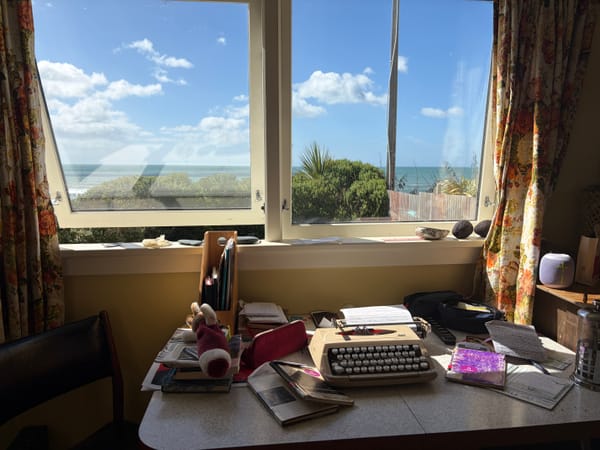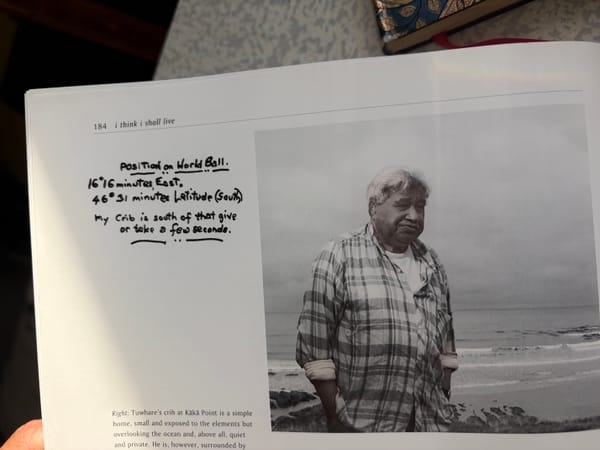What do you even know you're not capable of because you haven't tried yet?
A series of writing prompts via a collaborative zine to help you detox from social media, artificiality and the pursuit of perfection.
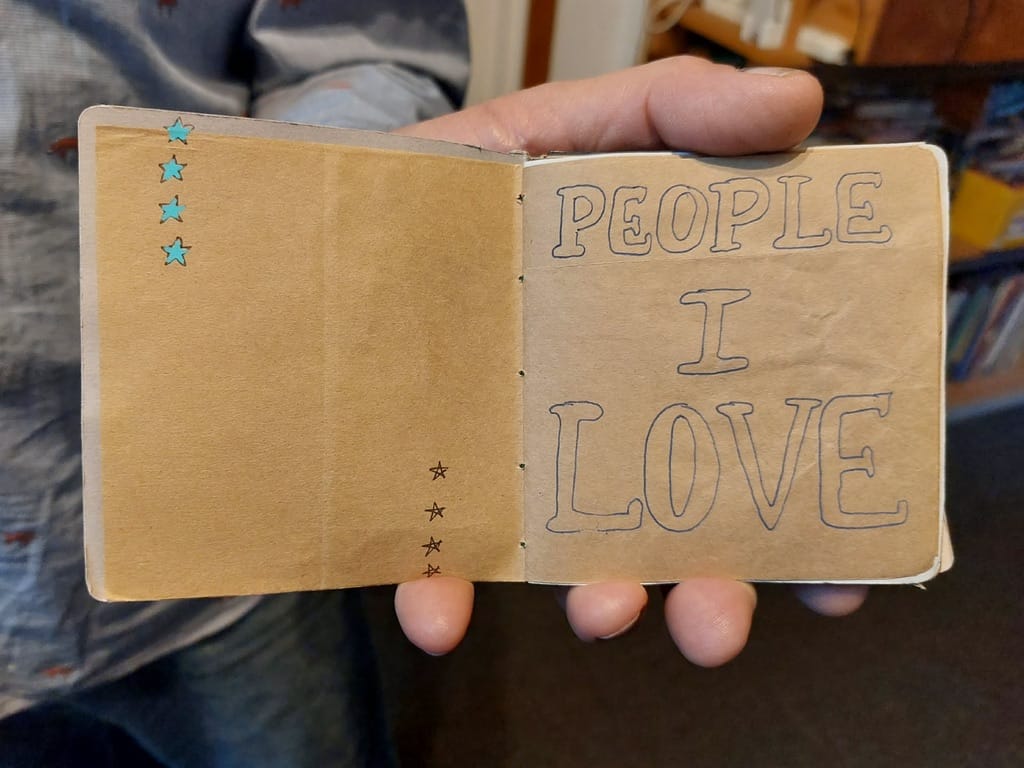
Ahhh, the blank page. Such an invitation. But so intimidating! Last week I sent out a handful of collaborative chain-zines with writing prompts, but I knew the most important thing to include was not the instructions (which are very straightforward: write your contribution, post it to the next person on the list). The most important thing was to reassure people that there isn't a right way to zine. In fact, zines want your originality and imperfection. They want the frivolous, the fringe, the spontaneous, the serious. Zines want what even you don't know you want yet.
In this sense, zines are much more about culture than object. Culture, from the latin ‘cultivate’, meaning to prepare the soil so it is rich and fertile for crops. Zines, in this analogy, are the worm tea of any thriving māra. Pungent, chock-full of healthy microbes and castings, zines (pronounced zeen, short for Magazine), are far healthier than social media's synthetic fertilisers that artificially supercharge growth but cannot sustain it and even erode the conditions for connection over time.
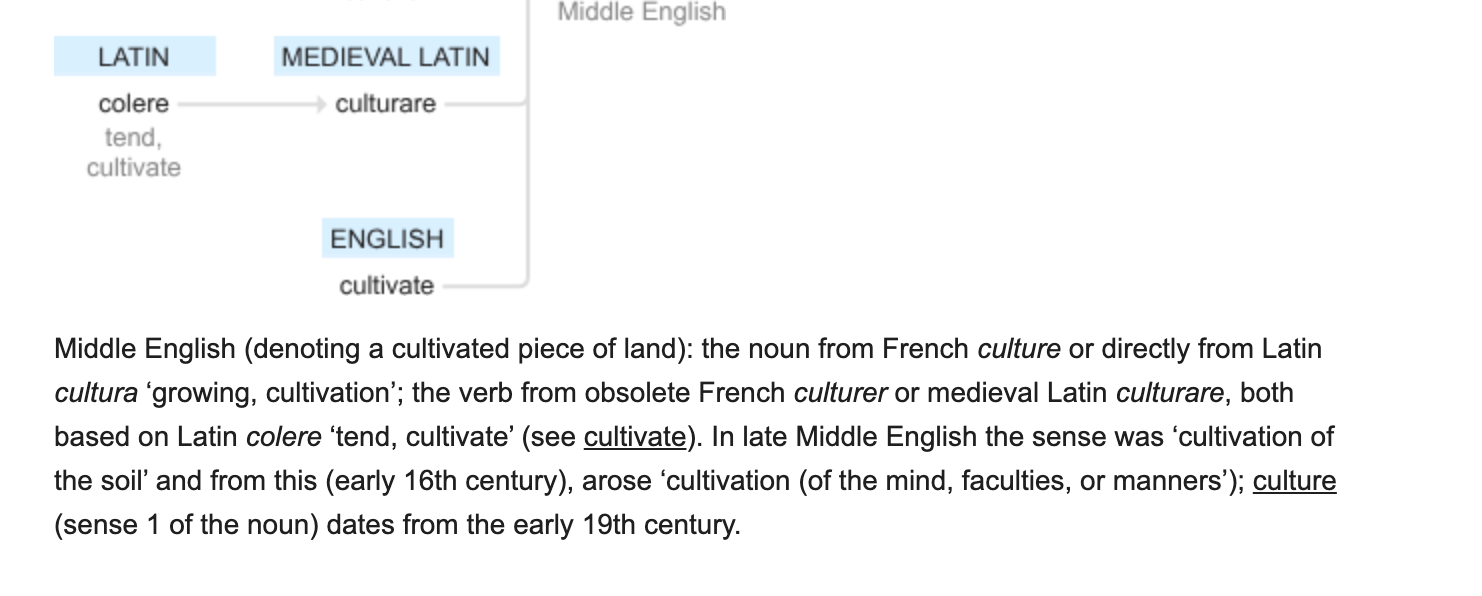
It's much harder to explain why a zine is, than what a zine is. A zine can be a folded sheet of paper. It can be a brochure, a poster, a single print hand-bound chapbook or a newspaper. You can print zines at home but it's smarter to print them at work where (if you're careful and discrete) it's free. A zine in very basic terms is any independent publication in physical form, or as I like to say:
"a public announcement no-one asked you for"
Ever since zines emerged in the 1930s they’ve been a way to circumvent, challenge and resist established authority. There are as many motivations to self-publish as there are hashtags on the internet. But arguably, the culture of independent publishing goes back much further than the 1930s. We don't even have to look overseas for the most inspirational examples. Back in 1859, Wiremu Toetoe and Hēmara Te Rerehau Pāraone apprenticed themselves to the trade of printing during an extended trip to Vienna at the invitation of the Austrian government. They learned English and German, attended parties, visited the zoo, rode the railway, kept journals and wrote everything down. Before they returned, they met with Emperor Franz Joseph, who, btw, never set foot in this land let alone sighted the glacier in Te Waipounamu that was named after him. Franz asked if there was anything the pair might like to take home from Europe with them by way of souvenir. I like to think the sharp-as individuals didn’t blink before replying together: “one cast iron Albion hand press and typeset please.”
Shipped to the opposite side of the world, this gigantic Albion printing press would go on to become the cast-iron heart of Waikato’s resistance, our first independent kaupapa Māori-owned and operated printing press. True to zine culture, these printing shenanegins put the Savvy in Savage, giving the infant colonial government of New Zealand a right headache. The press was churning out everything from the King’s proclamations to tribal minutes to obituaries, letters, lyrics, whakapapa, even goddam bank cheques. Most dangerous of all, a newspaper for the people in te reo Māori, edited by none other than Wiremu Pātara Te Tuhi. William the Writer.
Te Hokio o Nui-Tireni, E rere atu-na, like many an independent publication from Riot Grrl in the U.S. to Broadsheet in Aotearoa, was labelled “propaganda” by the authority it threatened. The press began publishing in 1861 but was shut down after just two years when Governor Grey rampaged through the Waikato, leaving iron letters scattered like bullets in the soil where rural legend has it type still occasionally gets ploughed up. [The press itself is pictured here, and can be visited at Te Awamutu museum. Ref: the very excellent “Books of Mana” by Jacinta Ruru, Angela Wanhalla and Jeanette Wikaira, pages 40-42. ]
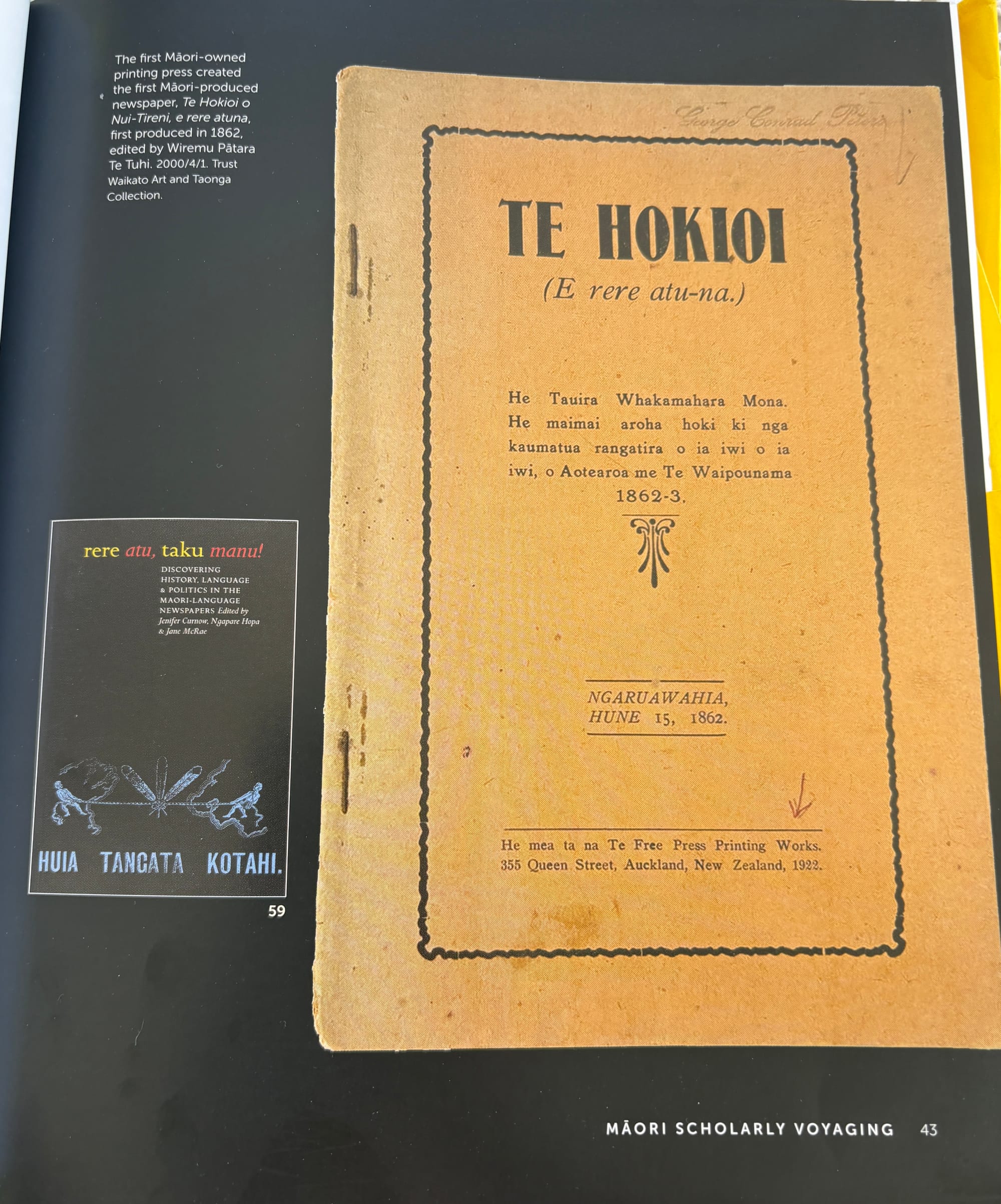
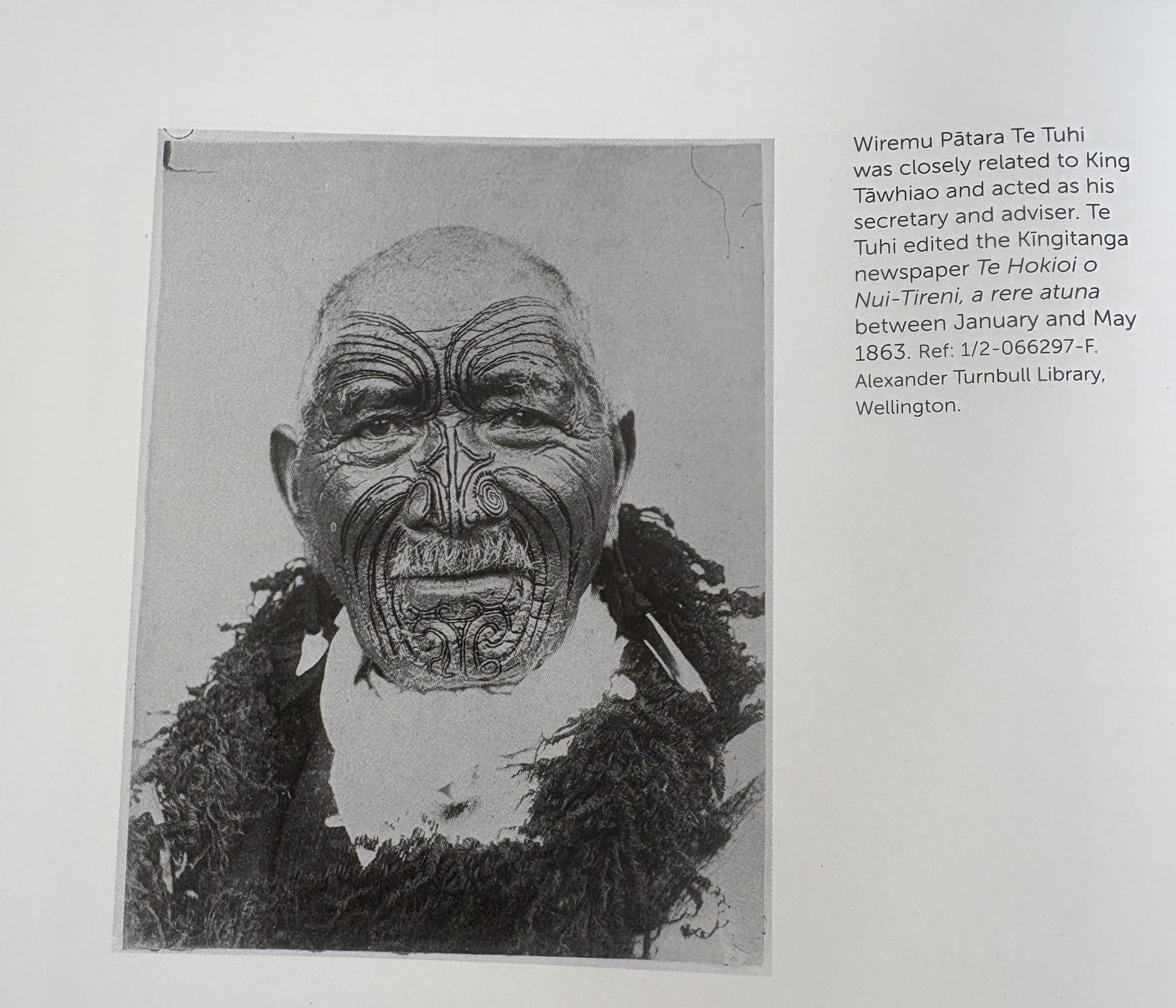
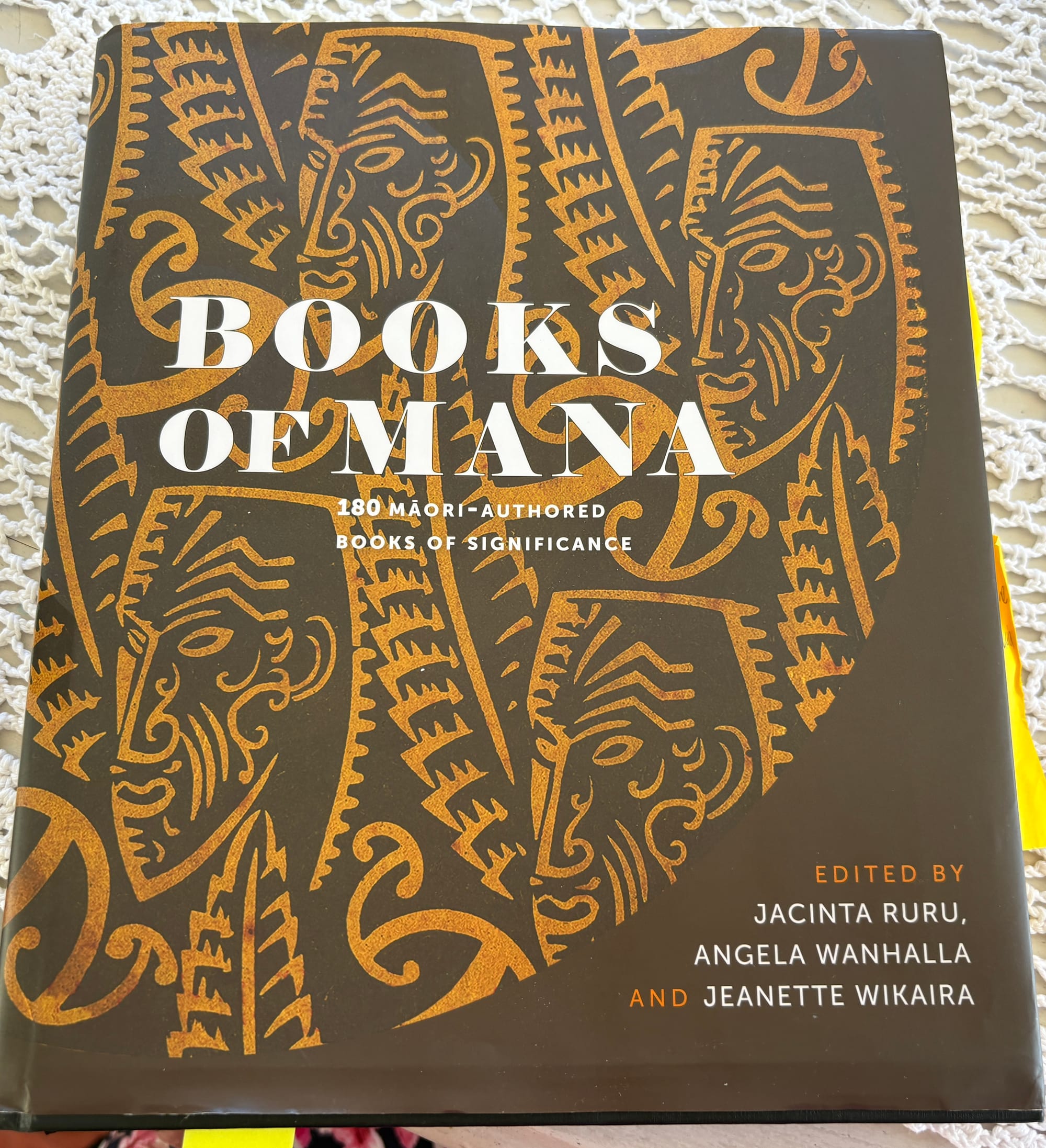
Photo 1: Te Hokio (E rere atu-na) p.43, Photo 2, Wiremu Patara Te Tuhi, editor of Te Hokioi, Photo 3, Books of Mana cover - must-own taonga!
If a printing press in the hands of natives could cause havoc in the 19th century, imagine what typewriters and photocopiers did for sci-fi nerds and punks and queers and feminists in the 20th (see this article for an excellent timeline and overview).
We're in the 21st century now and the landscape is very different but fear not, zines still be zining. We have printing presses at our fingertips and behind us on shelves. Computers have turned the laborious and highly skilled task of imposition into an activity anyone with a word processor can achieve, even you. What’s more, we have staplers and scissors and glue-sticks, and paper in greater quantities we could ever possibly fill.
We are more dangerous than ever.
Like the amateur presses before the digital revolution, zines are an oppositional energy. Anti-capitalist by nature, anti-corporate by design, anti-convention and anti-establishment because play and experimentation is how we learn, just look at Māui. Zines are pro-subversion, pro-liberation, but they work in a way that doesn’t feel like work at all. Making zines feels like fun. Giving them alway feels like joy. Zines let us glimpse the wickedness of abundance. Enough for everyone and more, like a garden exploding with things that want to be eaten and sniffed and multiplied and made into other things.
Zines produce content that is both serious and funny, often at the same time. Classic zines are almost always a bit weird, but in a way that makes you feel like a certain degree of weird is important and necessary, as if we are witnessing and revering the true diversity of human experience. Zines leave you questioning where ideas of 'normal' even come from, and especially who they serve and benefit.
Most critically, zines democratise access to knowledge and knowledge production. Unlike academic journals (like this one titled “A Printing Press for the Māori People” which requires a subscription) zines are cheap (or even free) - at least, they should be if they are pono to the culture.
Unlike social media, zines don't eviscerate the soil that connects us. Zines actively improve the conditions for all of us. They enhance and expand our capacity for attention rather than scattering us and diminishing us and forcing us to compete. Zines celebrate, exchange, challenge and test. They resist judgement, criticism and comparison - unless, of course, they are expressly doing that.
Zines have nomadic hearts. They’re imbued with something even more powerful than politics: the unseen. Wairua, creativity by another name. That vital essence in each of us that is inclined towards authenticity and light. They zing along underground networks, strengthening the collective from within and below, creating the conditions for connection, liberation and abundance.
If I can zine, you can zine, anyone can zine.
The only way to understand why anyone would bother to make a commercially non-viable publication in statistically insignificant numbers is to try it yourself. If you signed up to receive one of the collaborate zines I sent out last week it may have already arrived. Some might still be waiting for the postie to deliver it. For those who'd like to participate I re-opened the form and you can sign up here. For everyone else, I'm sharing the zine titles below for you to use as writing prompts today.
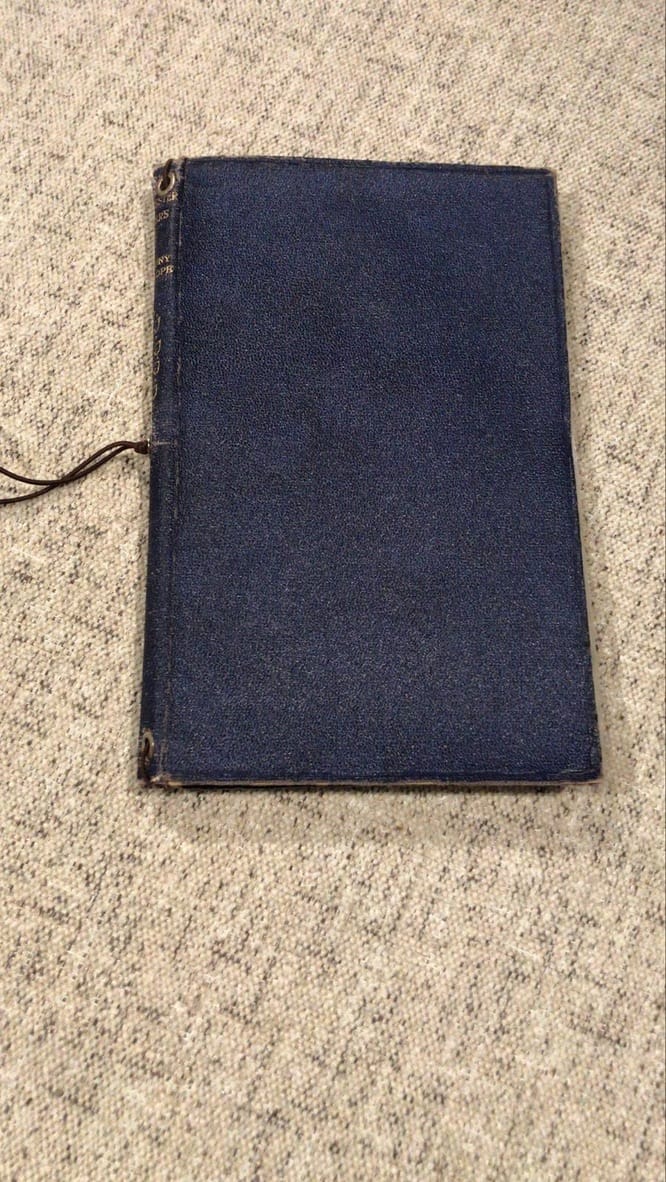
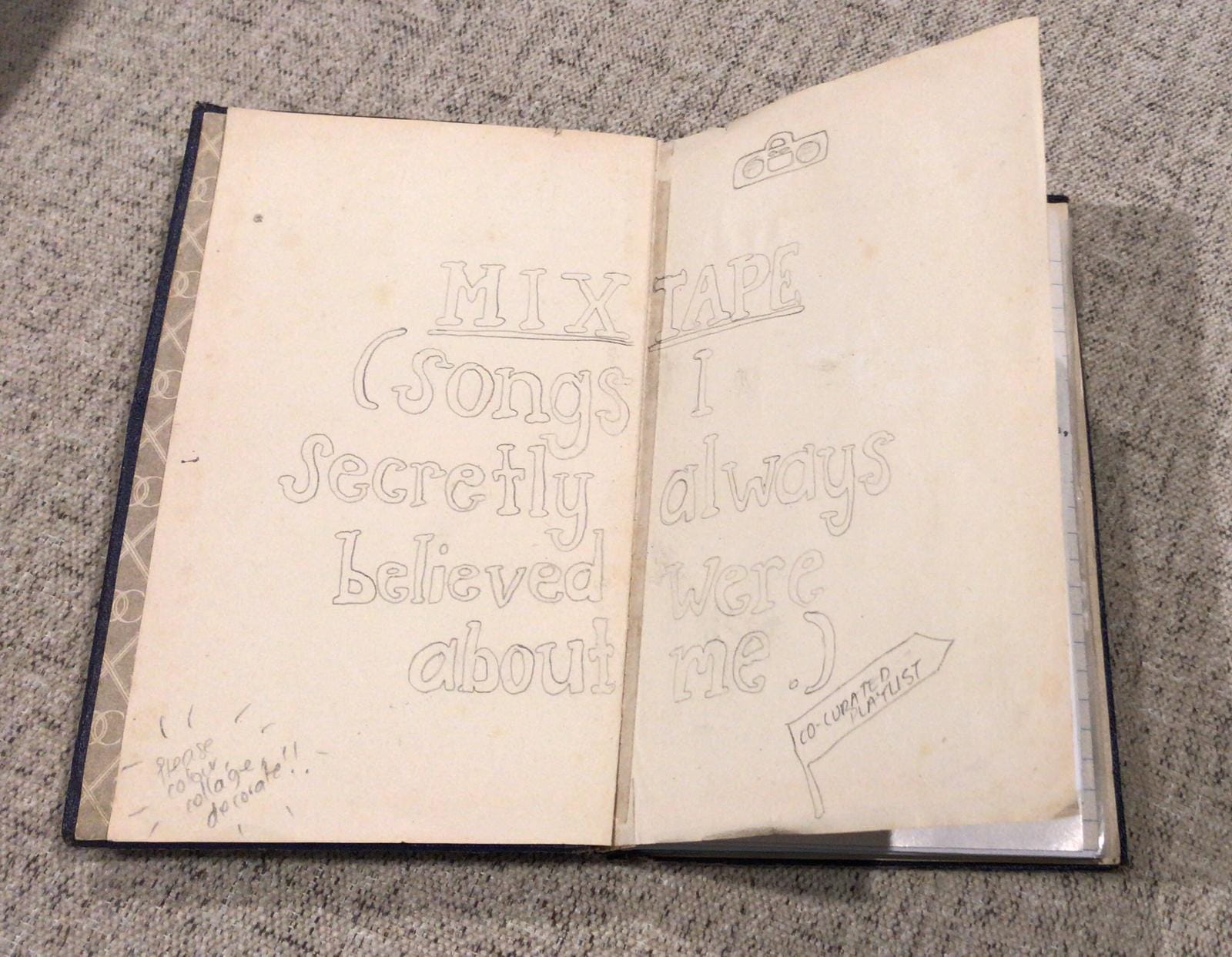
"Mixtape" - Songs I secretly always believed were about me" - on a single-print handbound book that was a gift from I can't remember who many years ago.
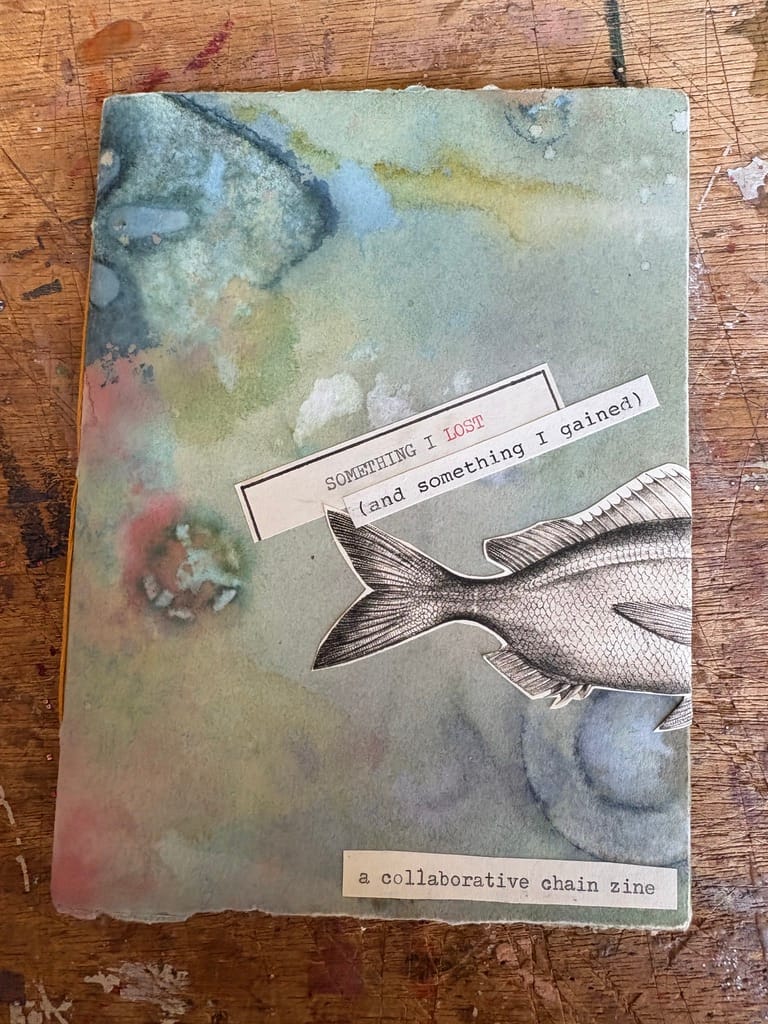
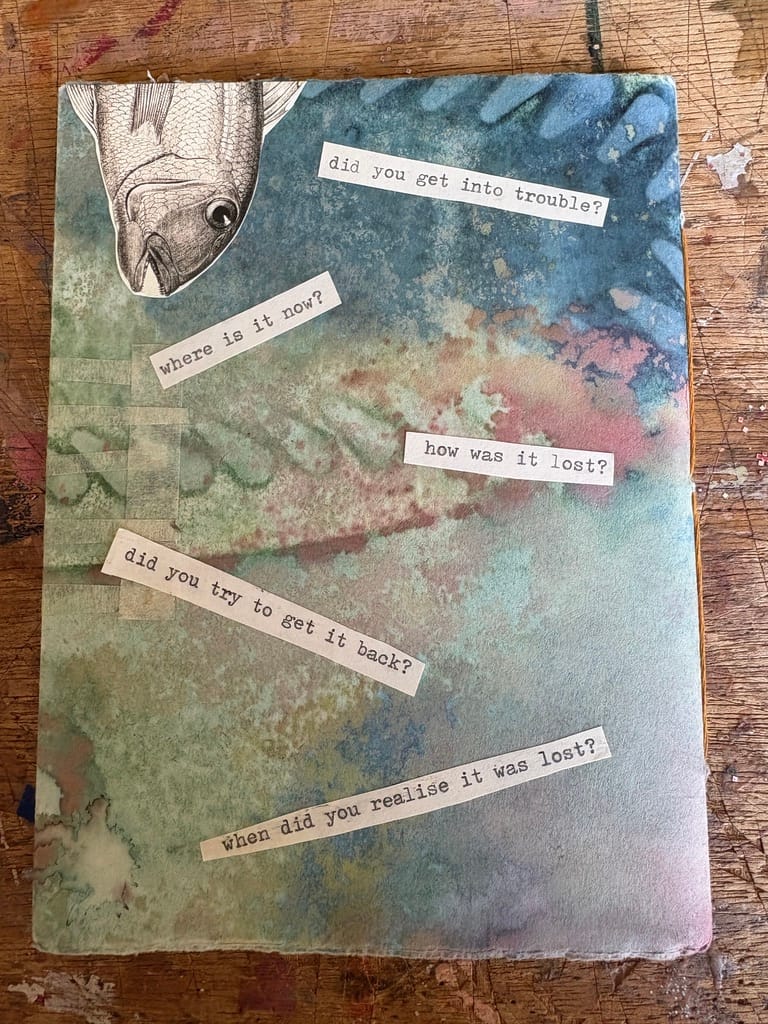
Something I lost and something I gained - printed on hand-dyed paper (a gift from Jemma Moreira at the Kupu festival this year). Zine has a body of the fish on the front, and the head on the back.
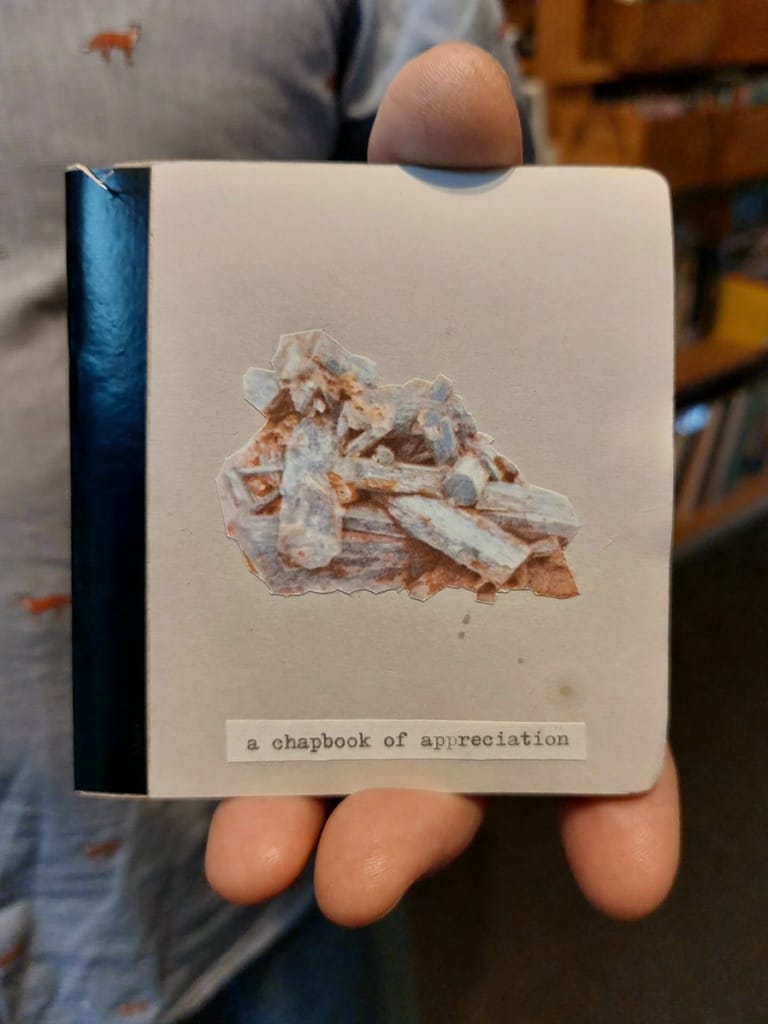
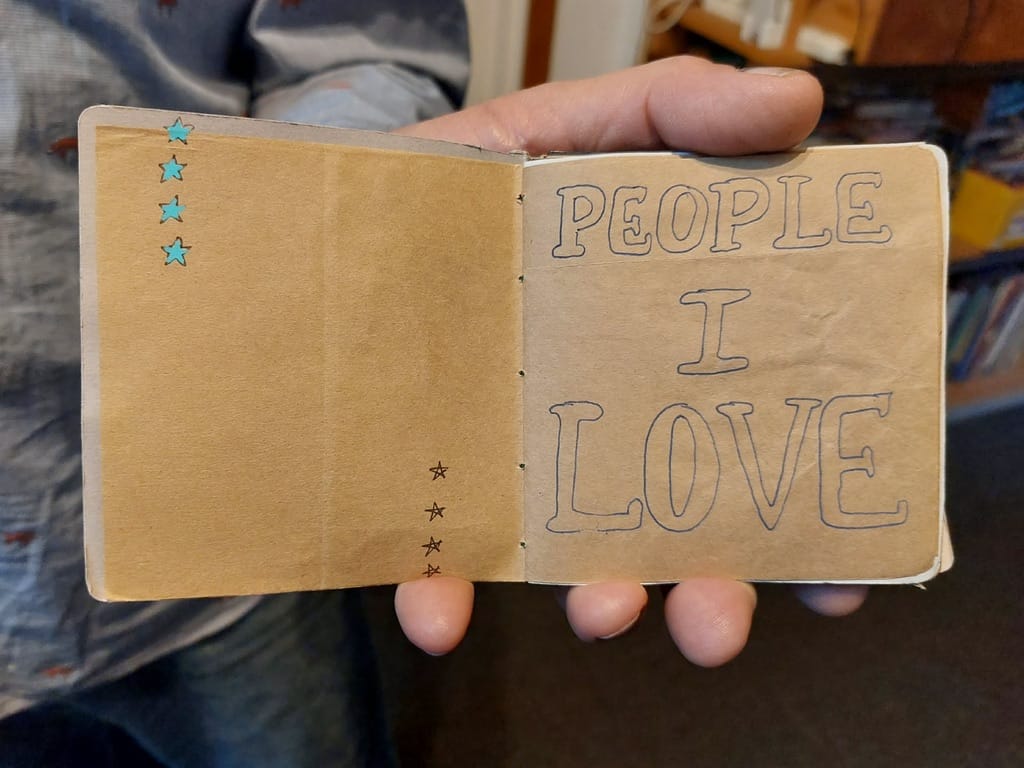
"People I love", a single-print zine gifted to me by my friend who writes the Stori of Hori blog (met via this newsletter ;)
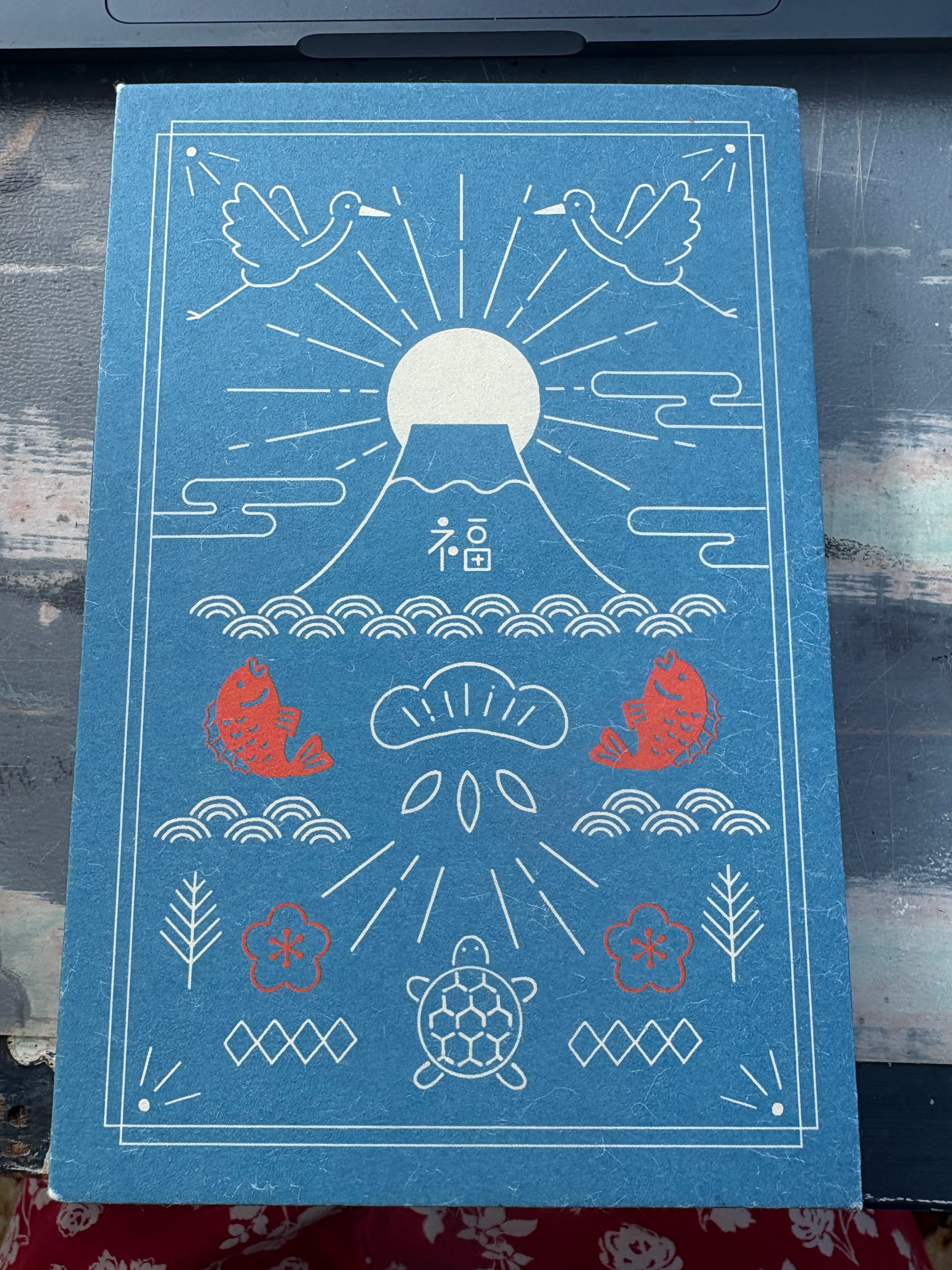
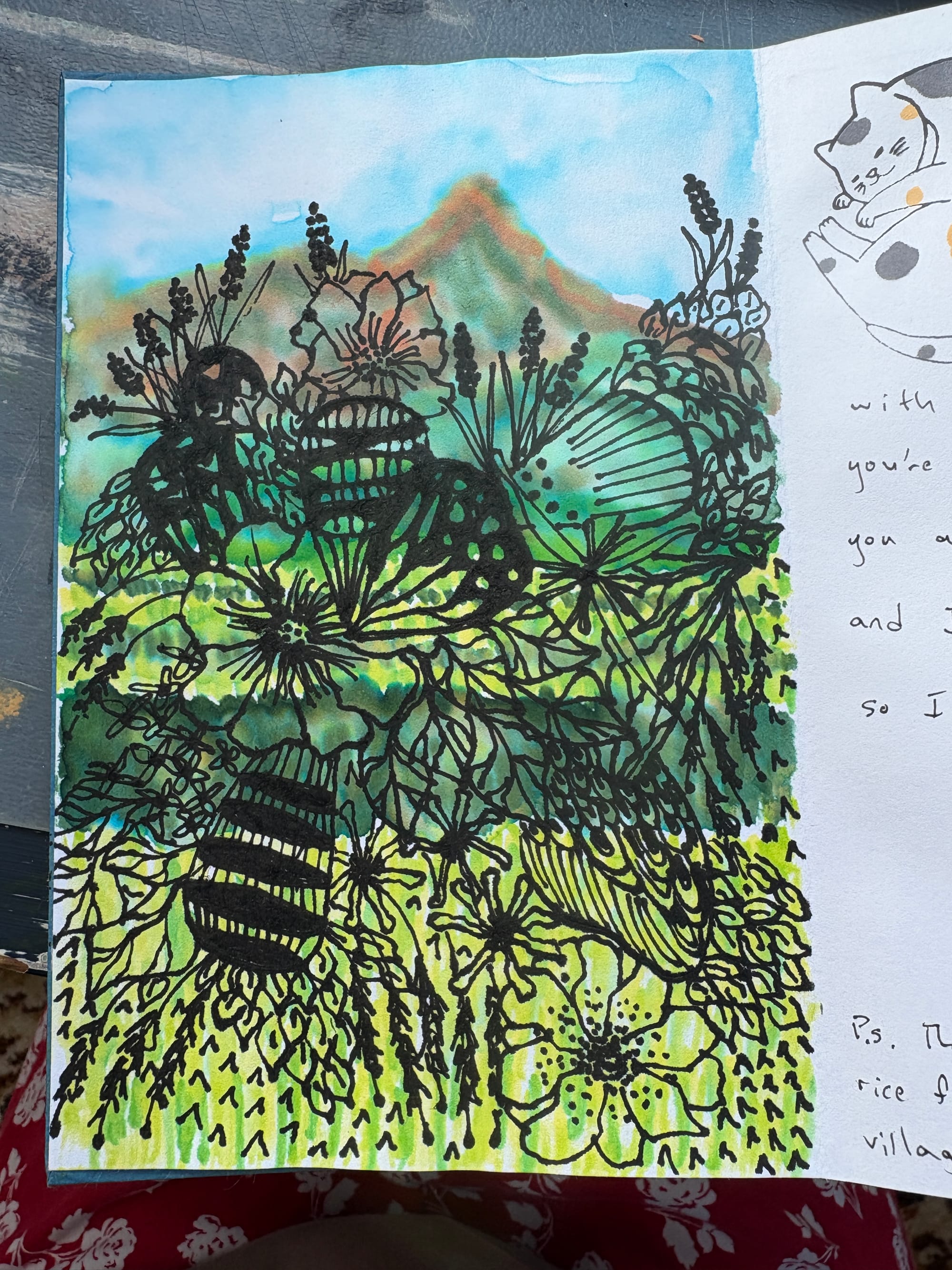
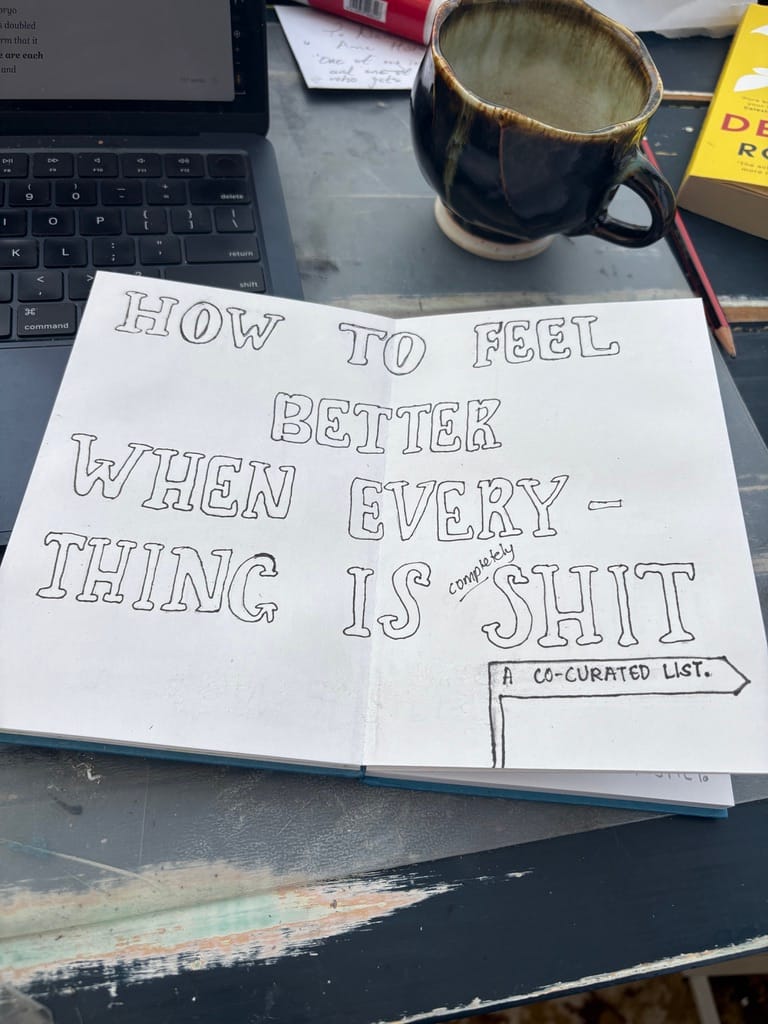
"How to feel better when everything is completely shit, a co-curated list" - On a single-print chapbook gifted by my friend and writer/artist/teacher Jess Hubbard.
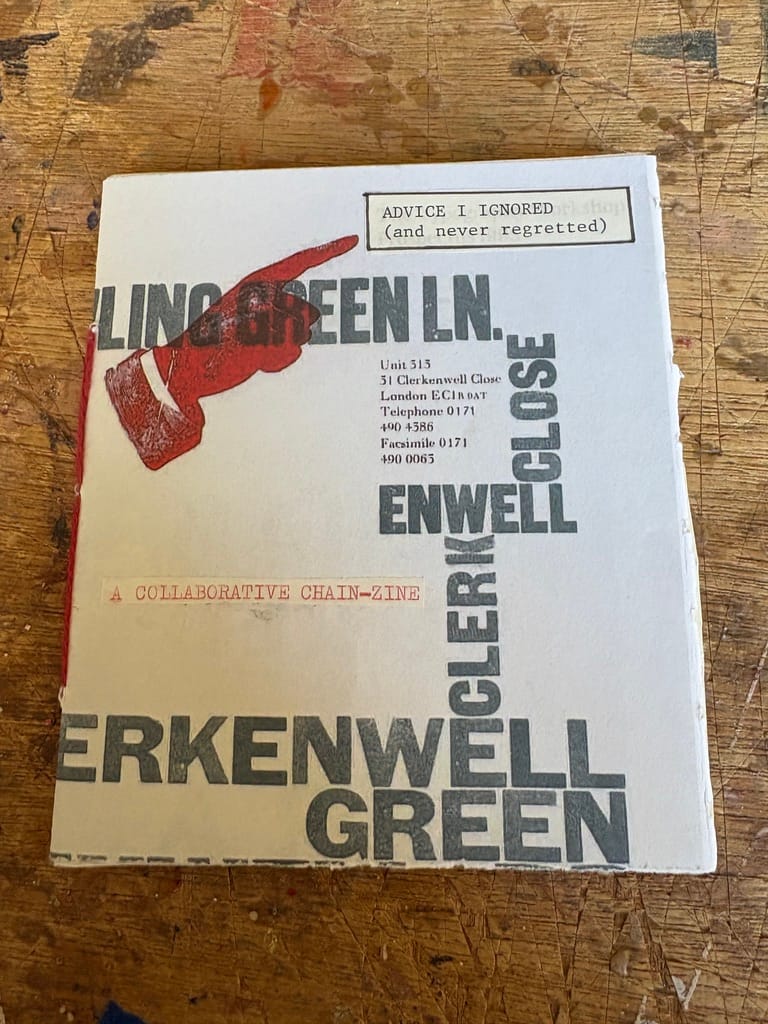
There's two more zines but I forgot to get photos before I hiffed them into the post. When the zines eventually make their way back to me (and I hope they do but you never know with a zine) my friend Éimhín and I are scheming to get them into the Porirua library. I'll share them here first because I think that was really my main motivation: to inject something real and tangible into our so-called social world.
I might just talking for myself here, but if feels like the more we rely on artificial fertilisers to simulate real-life connection the harder it is to wean ourselves off them. Some days I feel like an addict. My thumb opens Instagram before my mind has even had a chance to petition my sense of better judgment. Lack of self-control and moderation is an affliction. I bypass self-imposed daily restrictions like a robot, like a mouse going back and forth for another hit of sucrose even though I feel sick watching people yell at each other.
But stepping away is hard by deliberate design. Lots of us depend on these spaces and tools to stay in touch and even just do our jobs. That is especially true for artists, under this government more than ever.
But some days it feels so out of control I can't even feel my feelings anymore (which is something my 17 year old daughter said nearly two years ago when she deleted all her apps to detox and stop the internal numbness).
These collaborative zines feel, then, like the tiniest rebellion. A perfect example of the why of the zine. An oppositional energy against an algorithmic tide of reckons and wants that can't be fulfilled, as potent as a te reo Māori newspaper in the 1860s. These zines, no matter what they look like or which field they end up buried in one day, will be evidence of our confidence as autonomous, interdependent, socially connected, spiritual, thinking and feeling individuals.
The invitation is to let go of internalised ideas of perfection, aesthetic beauty and self-judgment, in pursuit of something better and much more innate: curiosity and community. The reward is surprise.
To be continued.
P.S. Bobbie and I went to see Ziggy Alberts on Friday night and it jolted me alive in a way that only live music can. As I write this I've been playing and replaying Ziggy's poem "the responsibility of the dreamer" ["People are rarely encouraged to pursue a life worth dreaming for. Yet it is the pursuit of our dreams and the pursuit of the previously unimagined that keeps both hope and the human spirit alight"].
Here he is when he came down to play amongst the people.

And please, if you need a boost today, listen to this song and remember you are born of stars.

